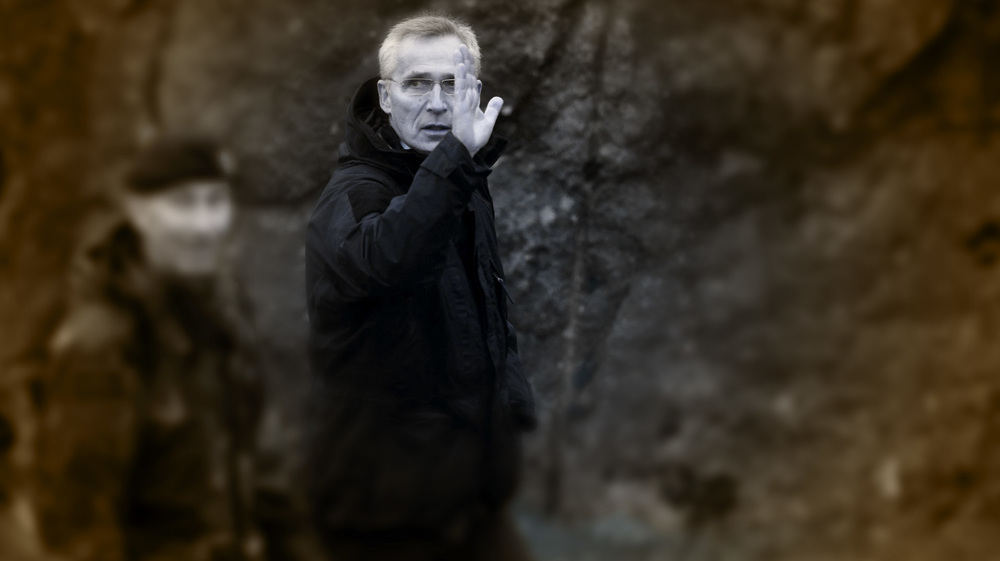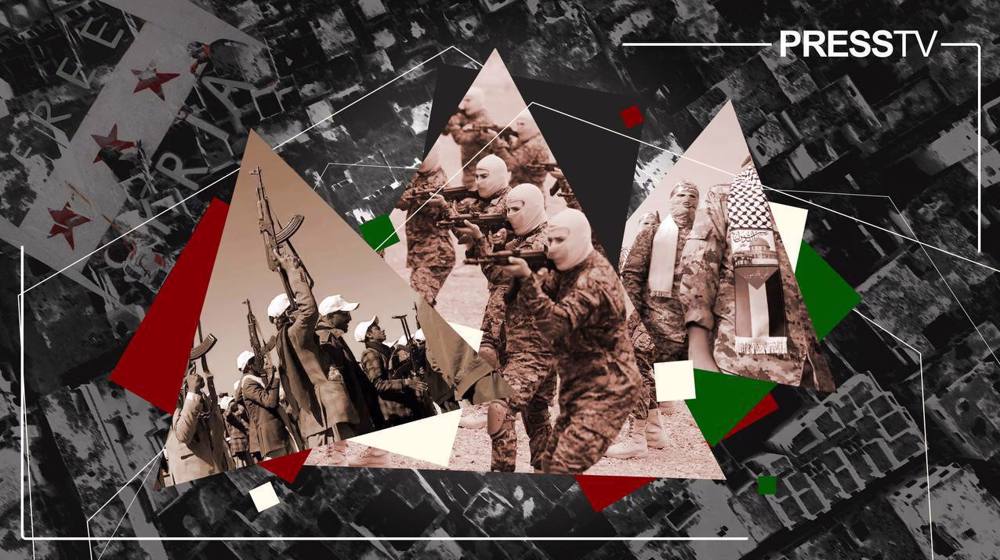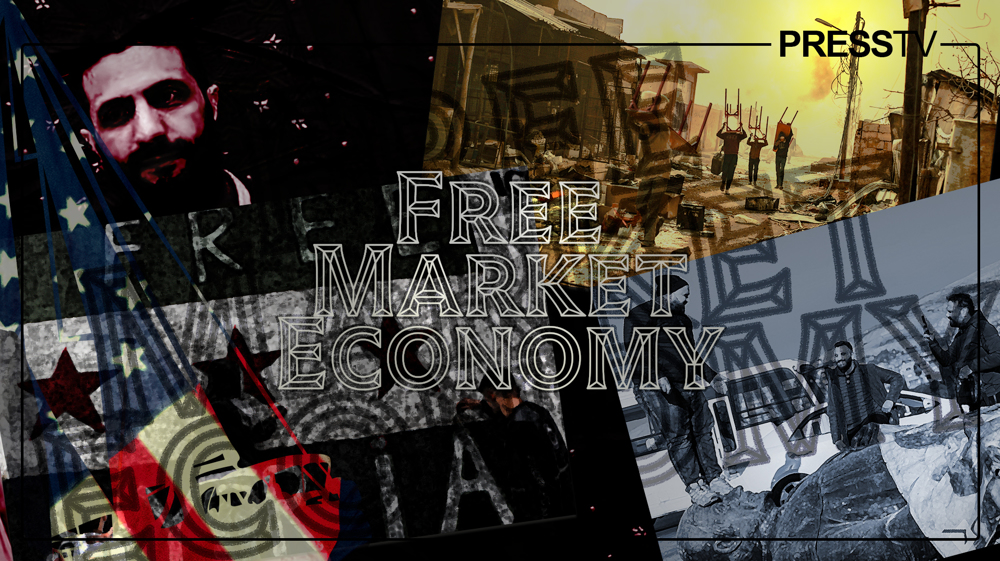Jens Stoltenberg should be begging people of Libya for forgiveness: Analyst
By John Wight
John Wight is an author and political commentator based in Scotland.
Jens Stoltenberg, secretary general of NATO, recently called for the fighting to stop in Libya. Such impertinence from the head of the organization which plunged Libya into the abyss in 2011, and in which it remains mired to this day, is of a rare sort; the preserve of men who practice statecraft like gangsters.
For gangsters is exactly what they are, with the destruction of Libya in 2011 one of the most heinous crimes ever committed in the name of Western imperialism, the highest form of gangsterism that exists on the planet - or maybe actually its lowest; you can take your pick.
Unleashed initially by the US, UK, France and Canada on 19 March 2011, before being contracted out to NATO by the UN under the auspices of Operation Unified Protector, the air war waged against then Libya president Muammar Gaddafi and his forces between March and October of that infamous year merely confirmed what the people of Serbia had already learned in 1999 – namely that NATO is an offensive military alliance not the defensive one claimed, wielded as a sword in the name not of democracy or human rights but hard power and US-led Western hegemony.
Since the overthrow of Gaddafi, culminating in his brutal murder by a gang of NATO-backed rebels, Libya has been a failed state, ruled by two antagonistic political and armed factions – one led by Abdul Hamid Dbeibeh from Tripoli in the west of the country, the other by Khalifa Haftar from Benghazi in the east. Islamic State also enjoys a presence in the country’s interior and for the past decade anarchy and lawlessness has prevailed, spawning a refugee crisis of biblical proportions and turning what was once the richest country in North Africa into a safe haven for terrorists and others whose business is murder and mayhem.
Murder and mayhem was certainly NATO’s business in Libya in 2011, which to all intents performed the role of air force to an unsavoury crew of terrorists and racist killers, both of which constituted the vanguard of the so-called Libyan so-called revolution.
Proof of it is contained in an article that appeared in the National Review in June 2011. In said article - ‘Al Qaeda and the Libyan Revolution’ - journalist John Rosenthal cites a report produced by two French think tanks into the uprising, identifying the forces involved and their relative strengths and weaknesses. According to Rosenthal the report “describes members of the al-Qaeda affiliated Libyan Islamic Fighting Group as the “main pillar of the armed insurrection.” He goes on the quote directly from the report thus: “No one can deny that the Libya rebels who are today supported by Washington were only yesterday jihadists killing American GI’s in Iraq.”
Meanwhile, in terms of the importance of Benghazi as the key locus of resistance and rebellion against the Gaddafi regime in Tripoli, the report’s authors claim that “Benghazi is well-known as a hot-bed of religious extremism. The Cyrenaica region has a long Islamist tradition going back to the Senussi brotherhood. Religious fundamentalism is much more evident here than in the western part of the country.”
Replace ‘religious fundamentalism’ in the above passage with ‘religious sectarianism’ and you come closer to the truth of the matter at hand.
So why, given the previous disasters of the West’s wars and interventions in Afghanistan and Iraq, would those same self-appointed ‘masters of the world’ embark on another military intervention in the Arab and Muslim world so soon after, and in so doing confirm Marx’s admonition that, “History repeats itself, first as tragedy, then as farce.”
And why would they intervene in Libya, given that what was roundly being described as a revolution clearly failed the test of popular support throughout the country to qualify it as such? If it had been a revolution, underpinned by mass support among the population, and involving the defection of significant numbers of the country’s military and security forces, it stands to reason that it would not have taken eight months to topple the regime even with NATO air support.
Would it?
Western news footage of the rebels during the uprising was largely made up of disparate groups of men driving around in pick-up trucks, some with assault weapons and heavy machine guns mounted on them, firing salvos into an empty desert. They lacked discipline, cohesion and organization. As the Independent’s Patrick Cockburn was writing in August 2011: “Given that the rebels lack a coherent leadership or a united military force, the outcome is unlikely to be a clear-cut victory. Even if victorious, the rebels will depend on foreign support at every level to exert authority over this vast country.”
The question of ‘why’ is even more important when we consider that a proposal for a peaceful resolution to the conflict, drawn up by the African Union, was dismissed both by the rebels fighting the regime and their backers in the West.
The reality when it came to Libya in 2011 is that Western powers took the opportunity to ride the wave of an ‘Arab Spring’ that had taken them by surprise as it rampaged through Tunisia and Egypt, toppling Ben Ali and Mubarak, pro-Western dictators both. However what momentum this mass pro-democracy movement had gained in Tunisia and Egypt ended in Benghazi as Gaddafi’s forces moved east to quash it. And quash it they would have if the aforementioned Western powers had not intervened when they did.
A failed state at war with itself and human suffering on a massive scale, this was and is the fruits of NATO’s role in Libya. Mr Stoltenberg, instead of lecturing the people of Libya, get on your knees and beg them for forgiveness.
It’s the very least you can do. The very least.
(The views expressed in this article do not necessarily reflect those of Press TV.)
D-8’s role in Iran’s economy after Cairo summit
China slams US as ‘war-addicted’ threat to global security
China ‘firmly opposes’ US military aid to Taiwan
VIDEO | Press TV's News Headlines
President Yoon Suk Yeol to be removed from office
At least 19 Gazans killed by Israeli airstrikes since dawn: Medics
Leader: Iran neither has nor needs proxy forces
US fighter aircraft shot down ‘in friendly fire’ amid aggression on Yemen










 This makes it easy to access the Press TV website
This makes it easy to access the Press TV website